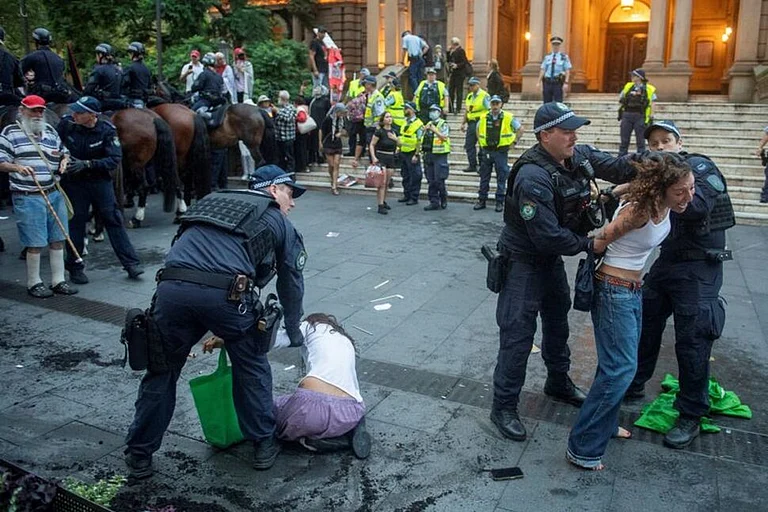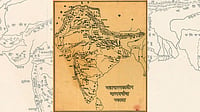All book reviews are subjective, but it is the political novel that most acutely confronts the reviewer with the consciousness of his own subjectivity. Can a reviewer manage to separate his professional appreciation of the literary work before him from his reaction to its political viewpoint? As a writer myself, I found myself with much to admire and value in Mirza Waheed’s first novel, The Collaborator; but as an Indian politician, I found it impossible not to feel profound discomfort with the political sympathies the work seeks to evoke.
Mirza Waheed is a Kashmiri, a product of Delhi University with four years in Indian journalism, who has spent a decade working for the BBC’s Urdu service in London. He writes, for the most part, beautifully; there is a lyricism to his prose and in his evocative descriptions of places and emotions, and only a few unnecessary exclamation marks mar his deft handling of the language. As an aesthetic experience, his is amongst the better first novels you are likely to read. The Collaborator flows well, and keeps the reader engaged; many of the book’s scenes and images, and its overwhelming theme of loss, will haunt the reader for a long time.
The collaborator of the title is the book’s narrator, a Kashmiri boy in his late teens, living in a close-knit community of families in a Gujjar Muslim village, Nowgam, near the Line of Control with Pakistan at the onset of the 1990s. This was the time Islamabad seriously began to infiltrate terrorists (many of them Pakistani, Afghan and even Arab) across the border to wreak havoc in Kashmir, and many young Kashmiri men were inveigled across to the Pakistani side to receive arms and training before returning to wage war—and all too often meet their deaths—on Indian soil.

Our protagonist, the son of the village sarpanch, watches in dismay as his friends disappear one by one from the village to join the militancy, and eventually most of Nowgam’s residents flee the ensuing conflict. After coming close to following his friends, he is amongst the very few who remain, and soon finds himself roped in by Captain Kadian of the Indian army to help keep track of the soldiers’ kills: his job is to comb the valley for bodies of gunned-down infiltrators and bring back their ID cards and other mementoes for his military bosses. His recounting of this experience and the events leading up to it, leavened by the alcohol-fuelled rants of the Indian officer, make up the bulk of the novel.
Waheed frequently strikes emotional chords; if the novel were available in digital format it would be instructive to count how many times the word “tears” appears. But for the most part he is moving without being mawkish. Here is the narrator contemplating leaving home to join the militants, to “a world without the sanctuaries that Ma and Baba offered in their constant selves”: “I wanted to sit on the chowki one last time and bask in the warmth of Ma’s hearth. I wanted to smell Ma’s presence and etch it somewhere, I wanted to look at Baba’s grand face and keep it fresh with me. I wanted to wrap myself in his chadar and soak in its smell....” Such intimate details speak of a writer with a sure touch, deeply immersed in the world he is evoking.
But one does not have to wait for the epilogue, with its contentious recounting of statistics of the conflict’s Kashmiri victims, to gauge the book’s politics. “There were people dying everywhere,” the narrator declaims, “getting massacred in every town and village, there were people being picked up and thrown into dark jails in unknown parts, there were dungeons in the city where hundreds of young men were kept in heavy chains and from where many never emerged alive, there were thousands who had disappeared, leaving behind women with photographs and perennial waiting, there were multitudes of dead bodies on the roads, in hospital beds, in fresh martyrs’ graveyards and scattered casually on the snow of mindless borders.”
Elsewhere the novel speaks of a village whose every single woman has been raped by Indian soldiers, and depicts a gruesome beheading of a young Kashmiri as having been done by the army. Not only are such preposterous claims made as if they reflect fact, but the author largely absolves Pakistan of responsibility for its cynical use of Kashmiri youth in a proxy war with India; does not create a single sympathetic Hindu character, or so much as mention the syncretic, non-sectarian “Kashmiriyat” that was such a defining feature of the state’s ethos before militancy destroyed it; makes only a glancing reference to the suffering of the Kashmiri Pandits exiled from their homes by Islamist terrorists; and recounts only one incident of the militants’ own notorious brutality, while painting a portrait of Indian resistance to terror as unrelievedly brutal and murderous.
Of course Kashmiris have suffered terribly in the militancy, but the war was not imposed on them by India. The young men so sympathetically described in The Collaborator chose to pick up arms and use them, in unwitting pursuit of a neighbour’s strategic goals; India’s response, though hardly without flaws and failures of its own, was just that—a response to terror, and not the cause of it. The uninformed or prejudiced reader of this novel will come away moved by the writing and convinced by the righteousness of its political assumptions. That is what is so beguiling, and so dangerous, about a good political novel, and why this reviewer is impelled to both admire and reject it.


























